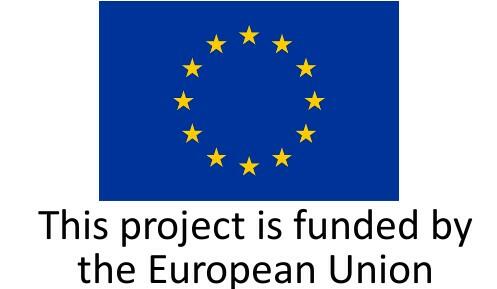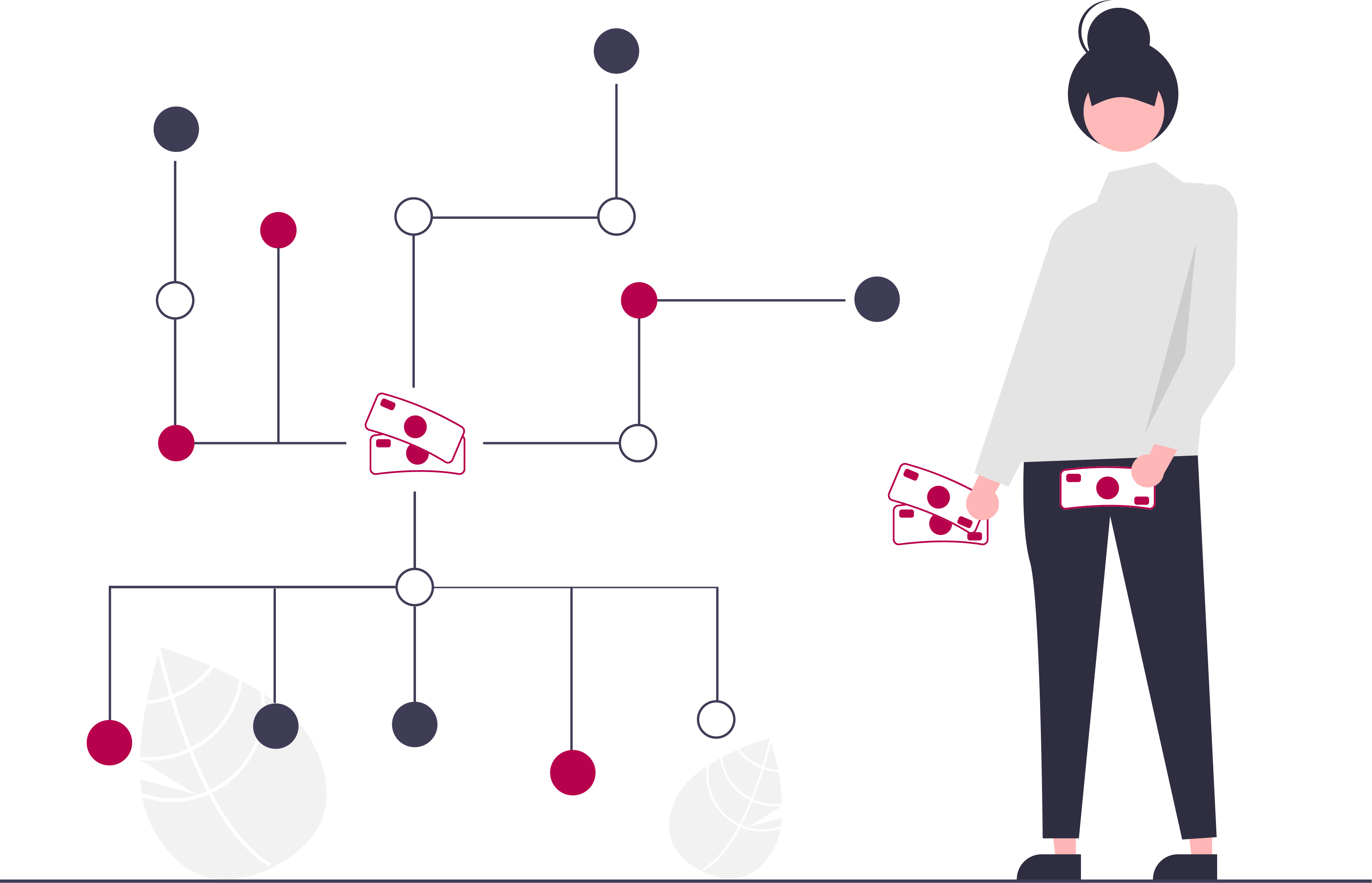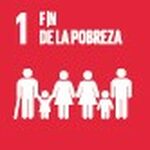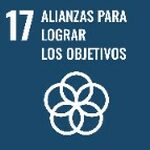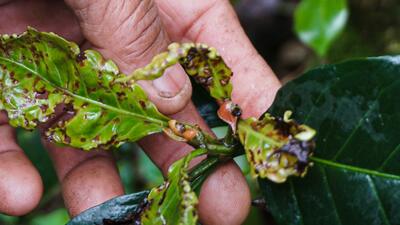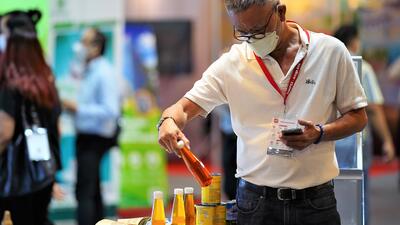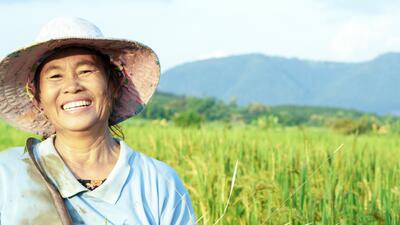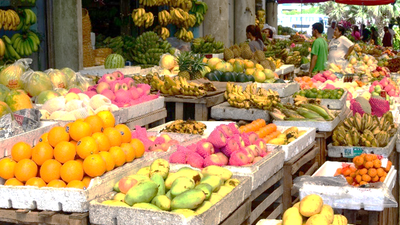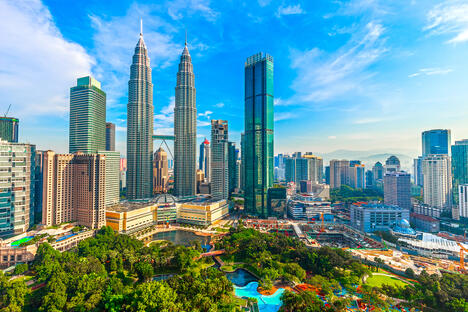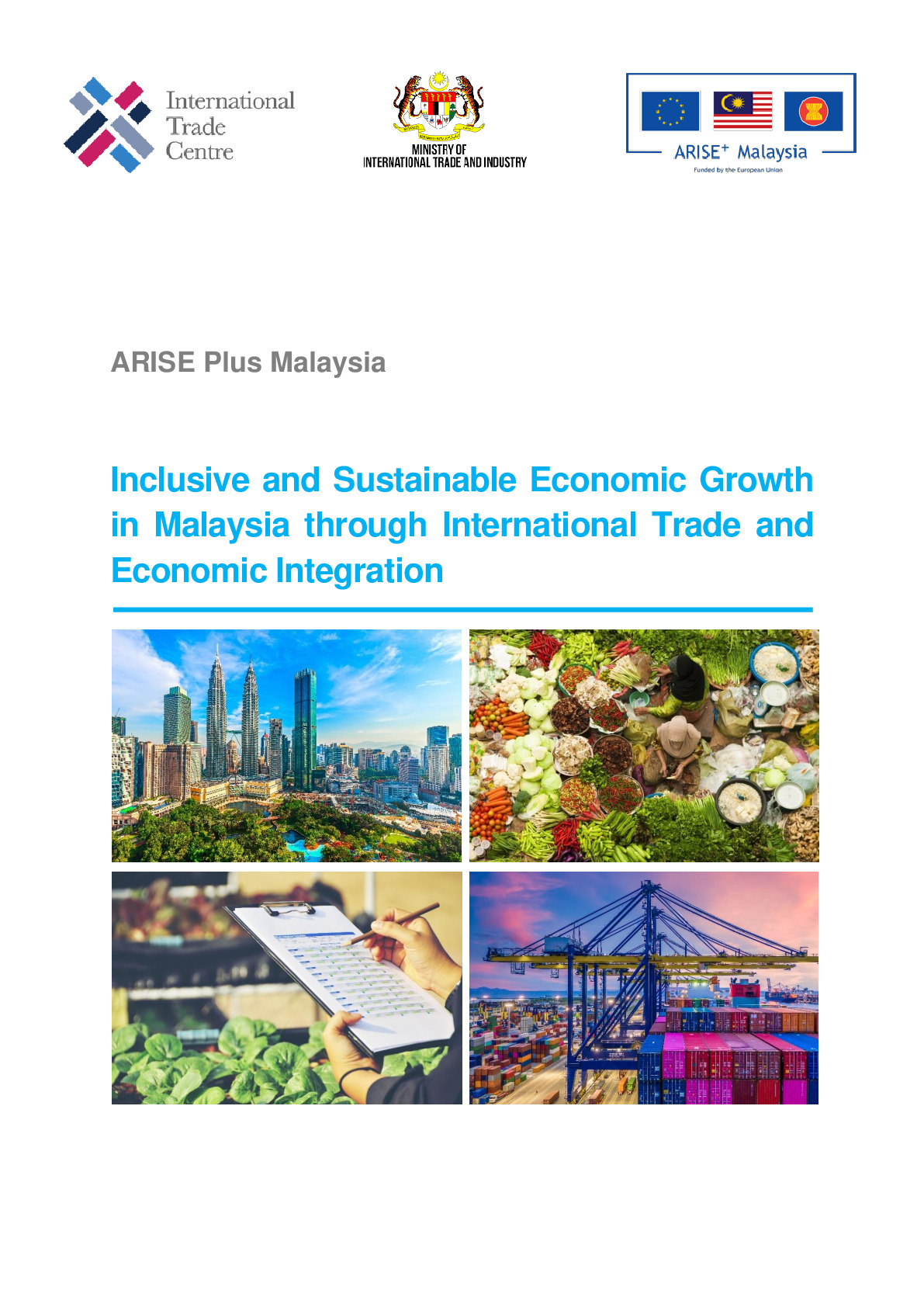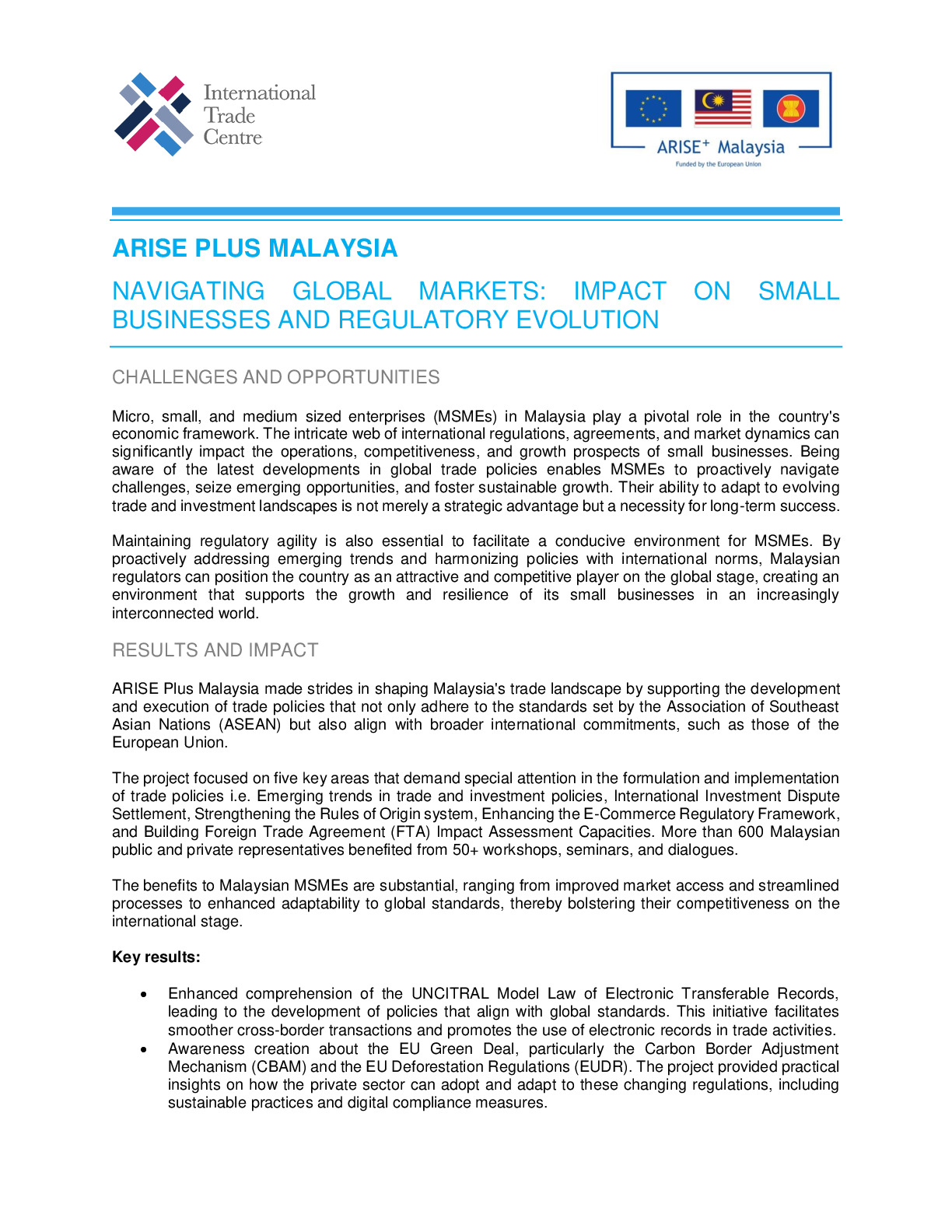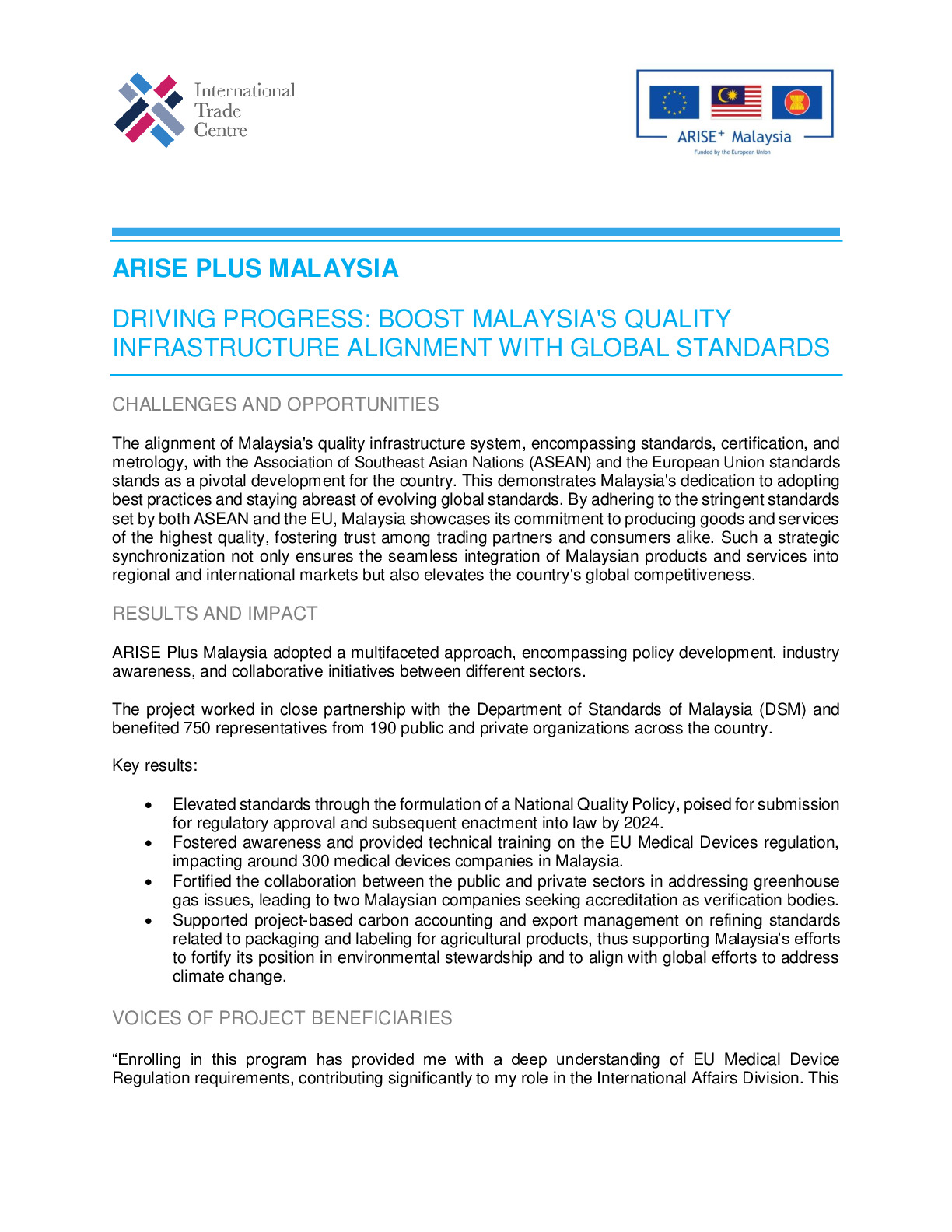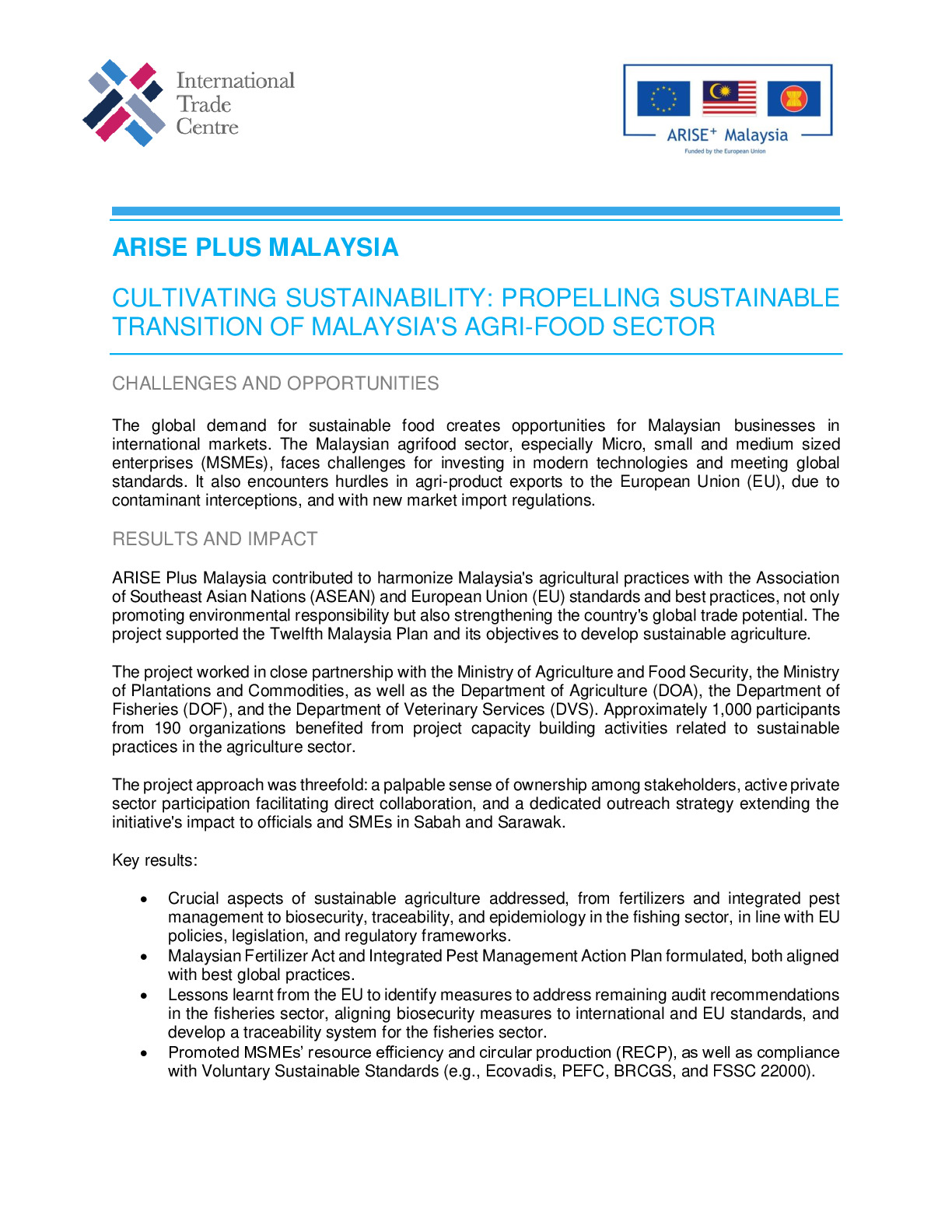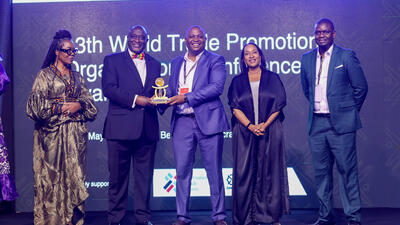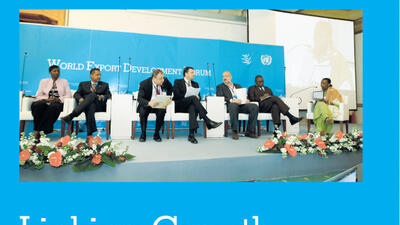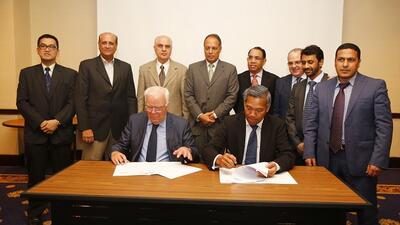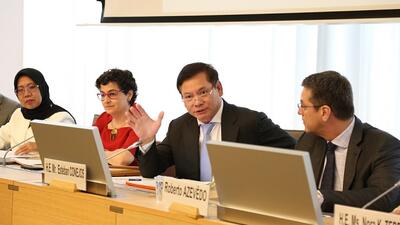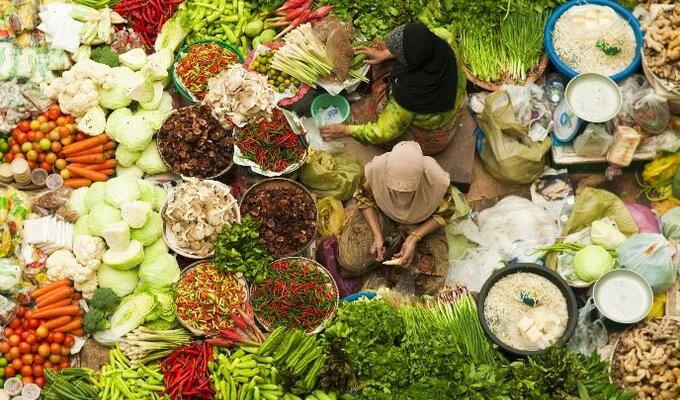

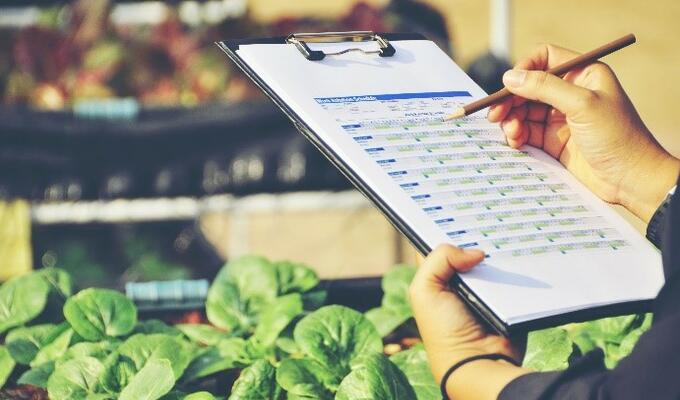
Malaysia: Trade-Related Assistance (Arise + Malaysia)
Información general
Resumen
The ASEAN Regional Integration Support by the EU (ARISE) Plus Malaysia aims to support inclusive and sustainable economic growth in Malaysia through international trade and economic integration. It supports greater connectivity and economic integration between Malaysia and the Association of Southeast Asian Nations (ASEAN) region in line with the ASEAN Economic Community (AEC) Blueprint 2025.
The 3-year project, worth EUR 3 million, which started on 1 February 2021, comprises of the 3 following outcomes and outputs:
- Outcome 1. Trade policy formulation and implementation is aligned with regional and international commitments
Output 1: Strengthened institutional capacities to formulate and implement trade policies aligned with ASEAN and international commitments - Outcome 2. Quality Infrastructure System is aligned with ASEAN and EU standards
Output 2: Enhanced capacity to develop and implement a quality infrastructure system (standards, certification and metrology) compliant with ASEAN and EU commitments and practices - Outcome 3. Sustainable practices in the agri-food sector is enhanced and disseminated, in line with ASEAN, international and EU standards
Output 3: Enhanced understanding and implementation of sustainable production standards and practices in agriculture and fisheries
These priority areas of support were identified together with the Ministry of International Trade and Industry (MITI) and Malaysian stakeholders to help tackle specific trade-related challenges faced by Malaysia. They are also relevant to support Malaysia in managing the economic and trade impact of Covid-19.
Ultimate project beneficiaries include Malaysian Small and Medium-Sized Enterprises (SMEs), which will benefit from improved business environment, policies and processes to increase their competitiveness. The focus on supporting Malaysia’s trade integration, which can positively impact job creation in export-oriented sectors, will notably contribute to addressing disadvantages faced more intensely by women and youth-owned businesses.
Asociados
Objetivos de Desarrollo Sostenible
Proyectos
Malaysia has undergone a dramatic transformation from dependence on agriculture and commodity exports to a more diversified and open economy with strong links to global value chains. Malaysia reached high middle-income country status in 1992 and the World Bank predicts it will reach high-income country status between 2024-2028.
However, the COVID-19 pandemic forced the Malaysian economy to shrink. In addition, Malaysia still faces structural constraints that need to be addressed to ensure its full participation in the ASEAN economic space and global economy.
Our project aims to:
- Upgrade capacities in policy areas relevant for modern and progressive Free Trade Agreements. This should improve connectivity with ASEAN and lead to more active and effective participation in the multilateral trading system.
- Improve product quality and competitiveness to better participate in global trade by upgrading Malaysia’s national quality infrastructure system, including developing a national quality policy, the enforcement of good regulatory practices and improving capacities to set, manage and enforce standards.
- Enhance sustainable and internationally quality-compliant practices in the agri-food sector through the promotion of standards and certification in the agriculture and fishery sectors. This will support the compliance of Malaysian products with EU standards, increasing business and export opportunities for Malaysian SMEs.
The launch of this three-year EU–funded project in February 2021 was timely, given the Government’s initiatives to enhance and reinvigorate the business and investment environment





